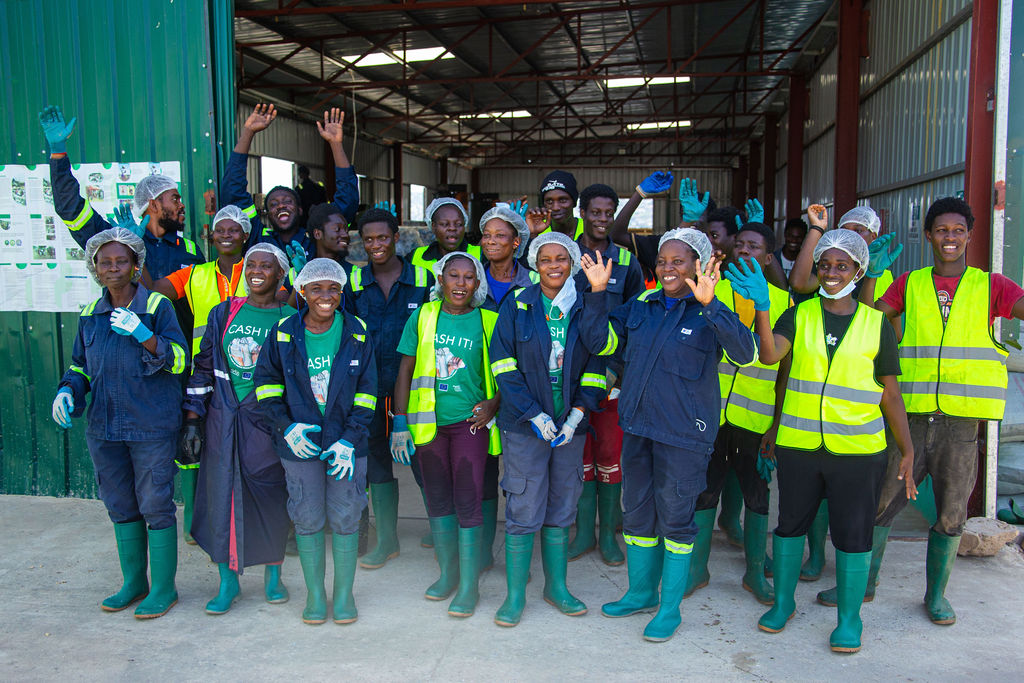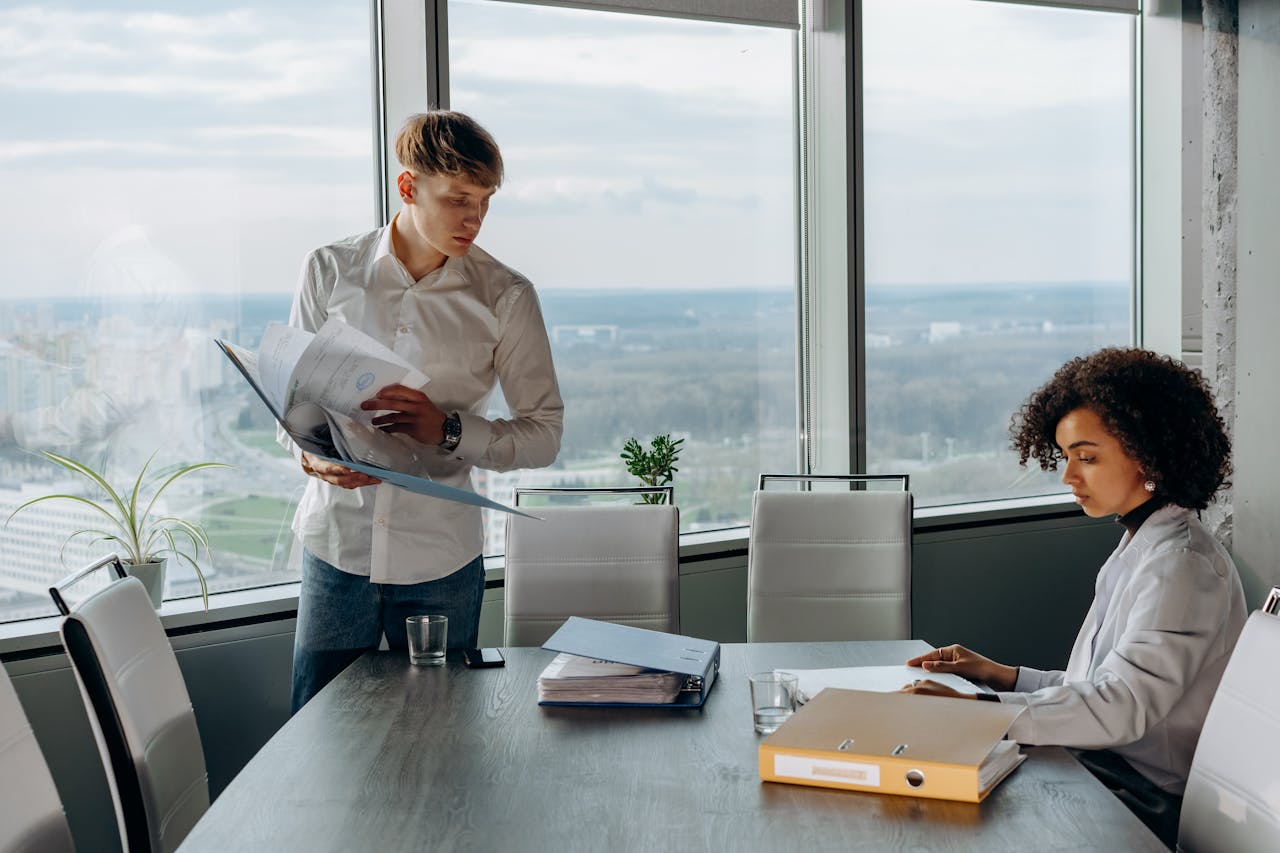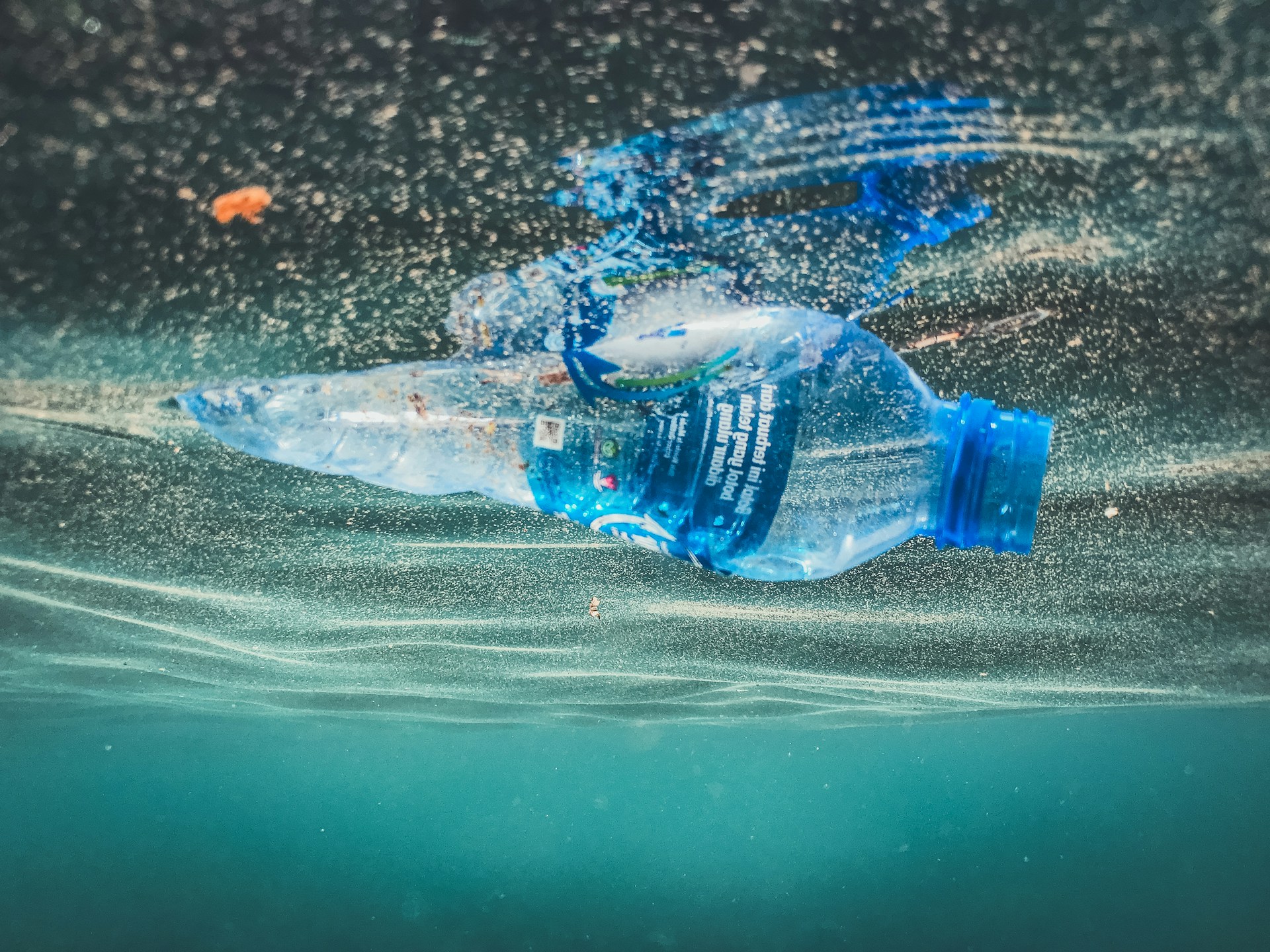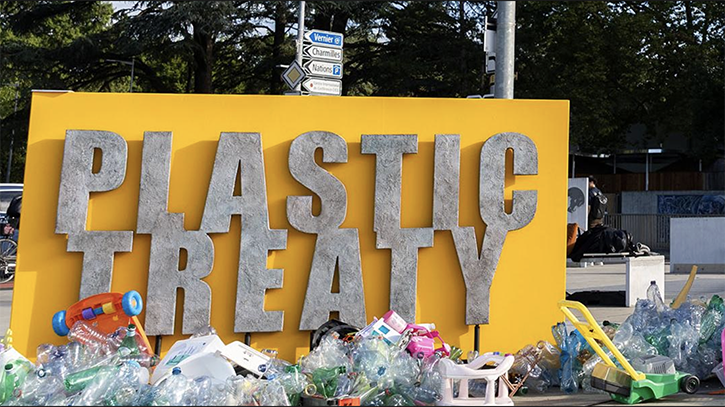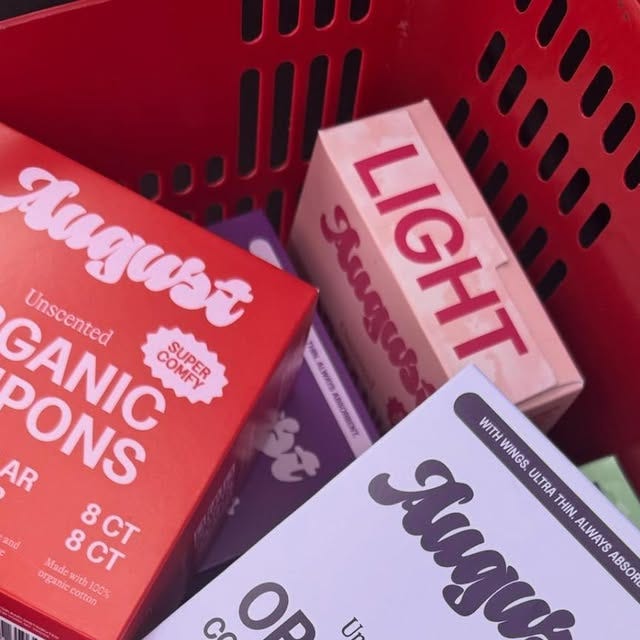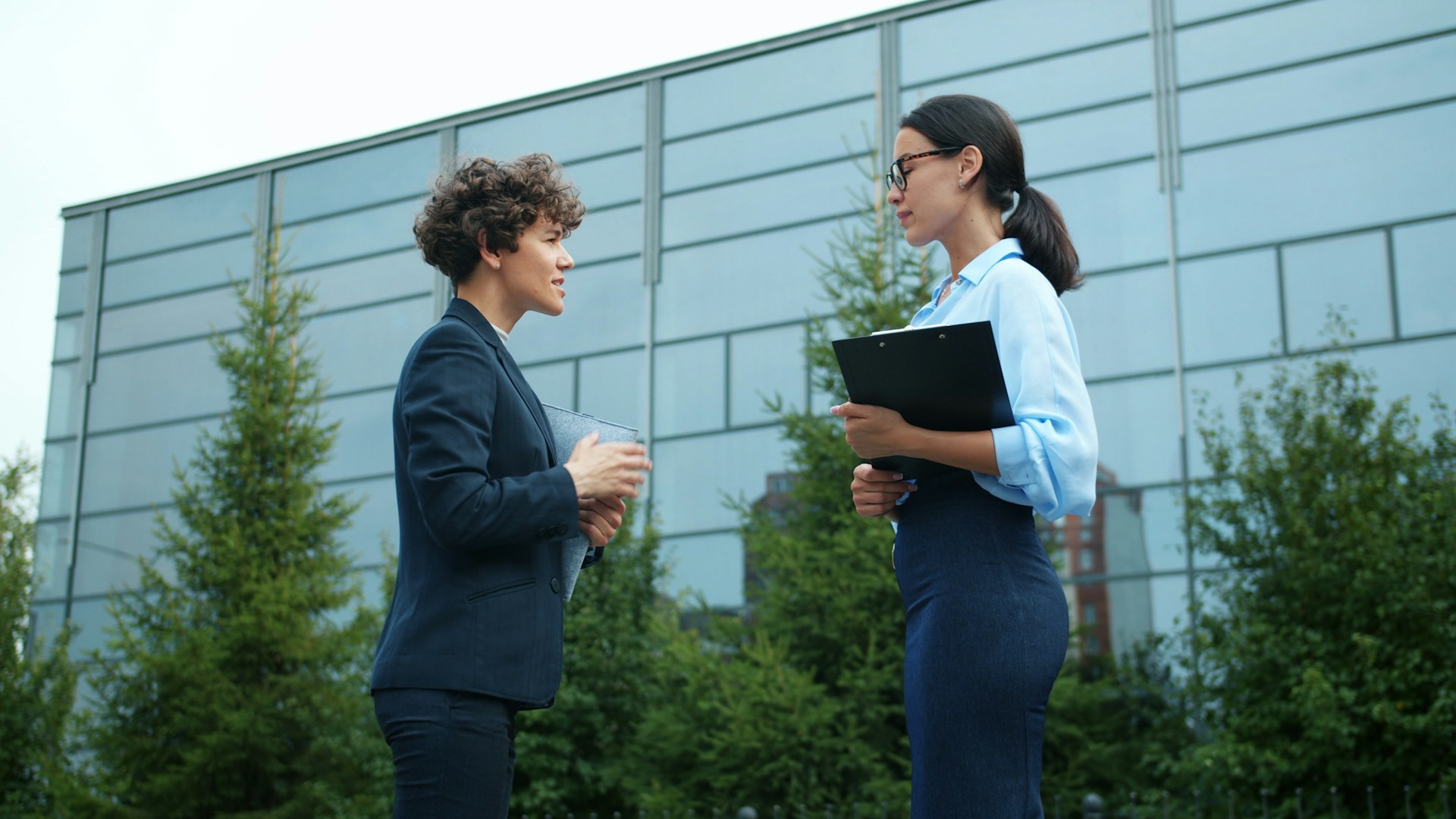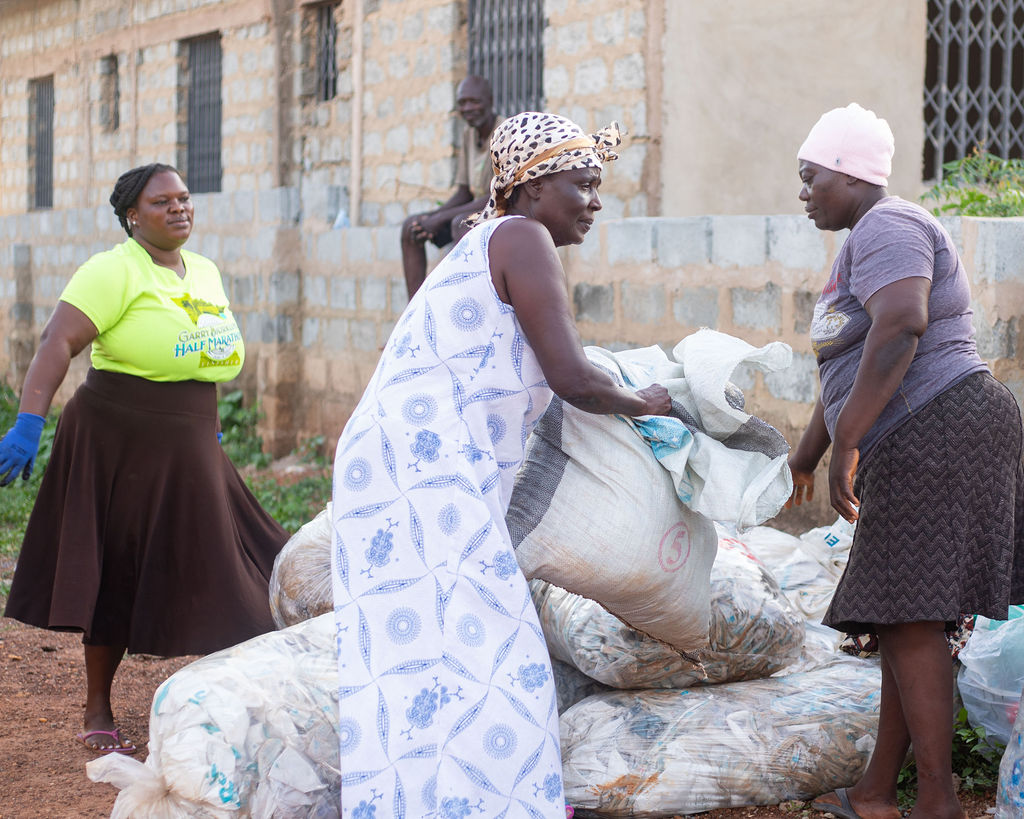
Ghana: Women leading Accra’s fight against sachet waste
In Accra, the daily rhythm of life is shaped by water sachets. Small, plastic packets that provide affordable drinking water where pipes and bottles fall short. They are everywhere: tucked into street stalls, handed to commuters, carried by children on their way to school. But when the last drop is sipped, the sachet is tossed aside. Millions of them collect in gutters, clogging drains and fueling flash floods during the rainy season. For decades, they have symbolized a growing crisis no one seemed able to solve.
The ASASE Foundation is changing that. Ghana’s only fully circular plastic initiative, ASASE has created a system where sachets once seen as waste are reborn as raw material, and women are leading the charge.
Each morning, collectors gather across the city, moving through neighborhoods where sachets pile high. Their work is tough: bending, lifting, hauling bags of low-value plastic that most people overlook. Yet for these almost 60 plastic collectors, the effort carries dignity. They are no longer invisible. Backed by some of the world’s most progressive brands, they are part of a certified recovery network, earning steady income and gaining access to healthcare and social premiums .
The results speak volumes: 15,744,000 kg (15,744 tonnes) of plastic collected, 4,383,000 kg (4,383 tonnes) recycled. But the real impact is measured in lives. Mothers can pay school fees on time. Families are better prepared for medical needs. Communities see fewer floods when drains run clear.
Indonesia: Stopping plastic before it reaches the ocean
In Java, Indonesia, rivers wind through dense neighborhoods and farmland before meeting the sea. Along their banks, plastic often gathers, swept downstream until waves carry them into the ocean. Indonesia is one of the world’s worst leakage hotspots, and for many years, the scale of the problem felt unstoppable.
That began to shift in 2020, when SEArcular by Greencore became the first project in the country to receive ocean-bound plastic certification . Today, with brand partners funding its growth, SEArcular has built one of Indonesia’s most trusted recovery systems.
It has already collected 24,178,000 kg (24,178 tonnes) of plastic and recycled 20,843,000 kg (20,843 tonnes), but the real difference is in how it’s done. Around 60 collectors, with half of them women, now recover low-value plastics that others dismiss. Thanks to brand-backed 10% social premiums and healthcare benefits, their livelihoods are secure and their work dignified. What was once informal, unstable labor has become a respected profession.
SEArcular also operates one of only three facilities in Indonesia capable of producing food-grade recycled PET. That means bottles and packaging don’t just vanish into a recycling stream. They come full circle, re-entering the market as safe, verified materials for use in eco-friendly packaging.
Beyond recovery, SEArcular is shaping culture. Partnering with schools and NGOs, it teaches children that plastic can have value, that protecting waterways is a collective duty, and that communities can thrive when waste becomes an opportunity.
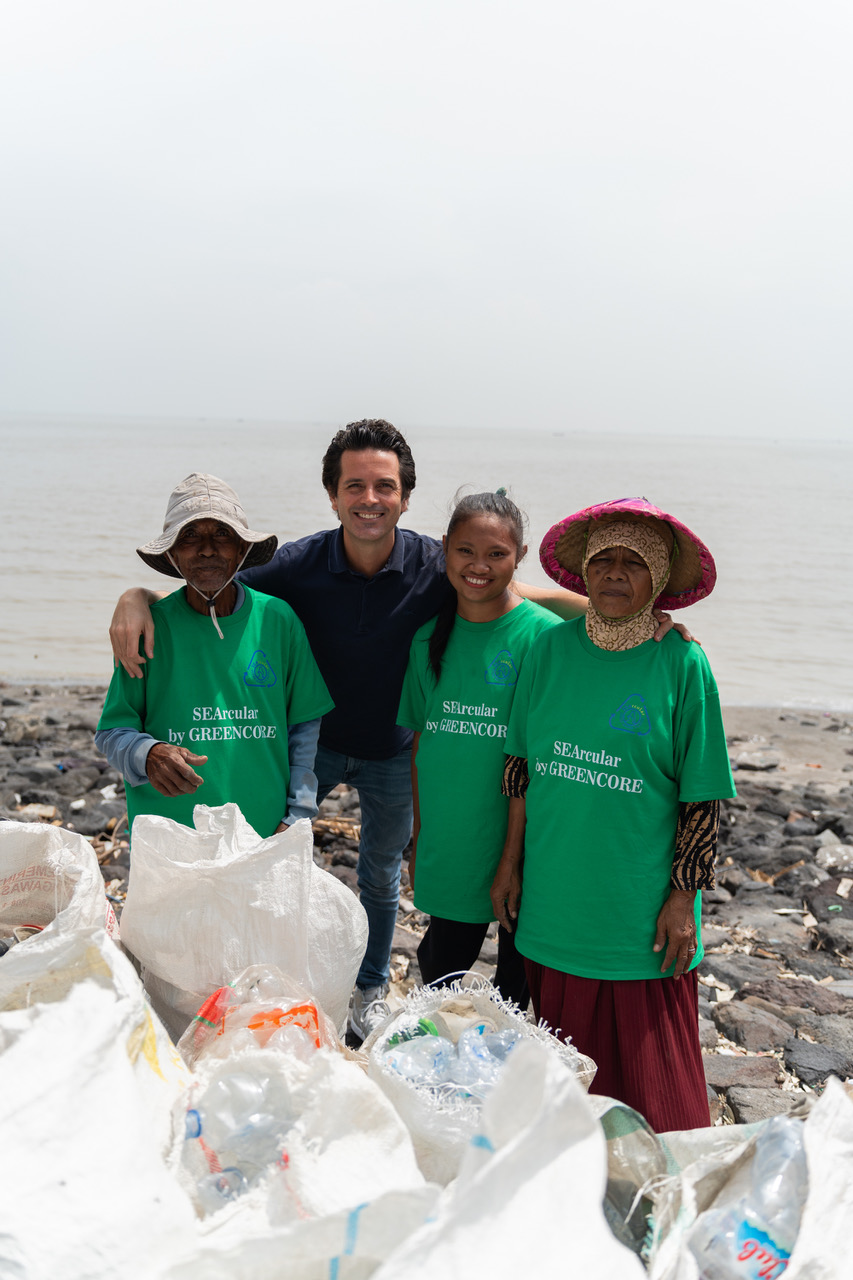
Why brands matter in this story
Neither ASASE nor SEArcular would exist at this scale without brands stepping forward. Corporate partnerships are what make these transformations possible.
- Partnership powers livelihoods: Collaborations help provide premiums and healthcare benefits that protect collectors.
- Commitments scale recovery: Tonnes of plastic are collected and recycled only because brands choose measurable, verified impact.
- Investment creates shared value: Communities gain dignity and opportunity, while brands gain credible impact that strengthens reputation and compliance.
For companies, this is a strategic investment in brand trust, consumer loyalty, and long-term relevance.
The Plastic Collective connection
Behind both ASASE in Ghana and SEArcular in Indonesia is a unifying partner: Plastic Collective.
We exist to help brands take measurable, certified steps toward plastic responsibility. Through Plastic Neutral programs, we connect companies with community-led recovery projects, design clear frameworks for action, and provide the certification and reporting needed for credibility.
Our role is threefold:
- Frameworks – we design the systems that ensure recovery efforts are measurable and scalable.
- Certification – we secure independent verification so every tonne is audited and every claim is credible.
- Storytelling – we help brands communicate their impact with confidence, backed by real human stories.
From a tailored Plastic Impact Plan to full-scale integration of sustainable and eco friendly packaging strategies, we help brands turn ambition into tangible impact.
Certified for trust
Impact only matters if it’s credible. That’s why every project we support is audited under leading global standards:
- Verra Plastic Waste Reduction Standard – verifies plastic recovery volumes with independent, third-party auditing.
- OBP (Ocean Bound Plastic) Certification – ensures collection is focused on plastics most at risk of entering the ocean.
- Social+ Standard – safeguards wages, safety, and rights for waste collectors, embedding fairness into every project.
These certifications turn good intentions into traceable outcomes, ready for investor due diligence, regulatory reporting, and the growing demand for plastic waste accountability.
Join the movement
In Ghana, a sachet once destined for a drain now funds women’s empowerment. In Indonesia, plastic once bound for the ocean now returns to the shelf as safe, recycled packaging.
These changes are only possible because brands said yes.
The question is: who’s next?
Your brand can help fund recovery that is:
✔ Certified and independently verified
✔ Measurable in tonnes, bottles, and community impact
✔ Transformative for women, families, and ecosystems
Every recovery project needs a partner. Every partner becomes part of a bigger story. Will your brand join the movement?
Try our Plastic Impact Plan generator now! It’s a simple, free tool to explore how your brand can turn plastic responsibility into measurable action.
